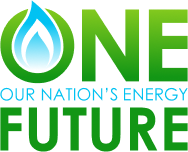At Black Hills Energy, our mission of improving life with energy means we must be ready to make tomorrow even better than today. That is why we are committed to creating a cleaner energy future that builds upon our responsibility to provide safe, reliable, and affordable energy. In 2020, we announced our goal of reducing GHG emissions intensity by 50% by 2035 (relative to 2005 levels) in our natural gas utilities.
Our GHG emissions reduction strategy includes:
- Pipeline replacement: a multi-year capital investment plan to replace aging infrastructure and eliminate higher methane-emitting unprotected steel, obsolete plastic and above-ground pipeline from our natural gas pipeline system. Since 2005, we reduced our annual CO2e emission by approximately 9,000 tons while increasing pipeline miles by approximately 6,000 miles.
- Services replacement: a multi-year capital investment plan to replace aging natural gas regulators and valves constructed of higher methane-emitting materials such as unprotected steel and obsolete plastic. Since 2005, we increased the number of natural gas distribution services by over 160,000 installations, while also reducing greenhouse gas emissions by over 20,000 tons.
- Damage prevention: Our comprehensive damage prevention strategy increases system safety and lowers the potential for methane to be released from a damaged natural gas pipeline.
- Renewable natural gas (RNG): We currently receive RNG from four facilities and are pursuing additional RNG opportunities. RNG, a potentially carbon negative energy, has the potential to further reduce operational and customer natural gas GHG emissions.
To help achieve our goal, we’ve committed to the EPA’s Methane Challenge and will replace all remaining unprotected steel pipes before 2035. In addition, we have developed comprehensive, programmatic integrity management programs to monitor our natural gas pipeline systems, upgrade our pipeline networks to enhance safety, improve system reliability and reduce or eliminate methane emissions.
